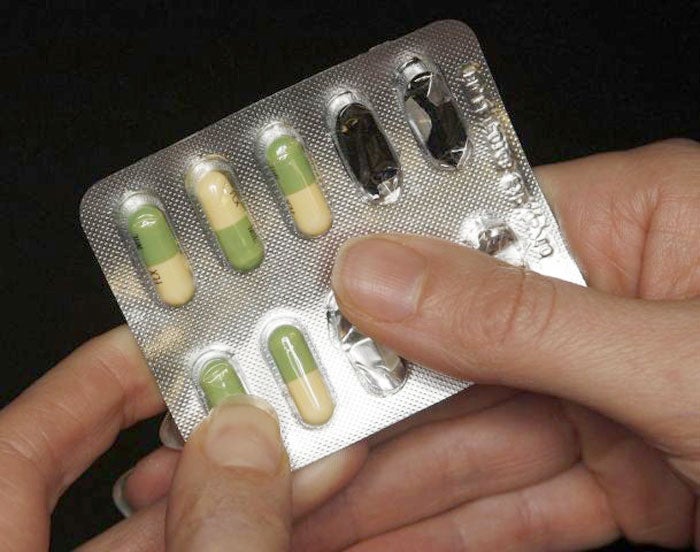The placebo effect: doctors admit prescribing unproven treatments, unnecessary tests and pills with no active ingredient
Patients given drugs with no active ingredients, or unproven or unnecessary treatments, finds study

The majority of British doctors have prescribed placebo treatment to patients, research has revealed.
In a survey of UK doctors, 97 per cent admitted administering ‘impure’ placebos. These are unproven treatments including antibiotics for suspected viral infections, and non-essential physical examinations and blood tests.
12 per cent of those questioned had used ‘pure’ placebos - treatments with no active ingredients, including sugar pills of saline injections.
Researchers at the University of Oxford and the University of Southampton based their results on a random sample of 783 doctors who completed a survey online. 55 per cent of respondents were male, the average year of qualification was 1993, the average days per week in current practice were four, and the average number of patients treated per week was 123.
These details were believed to reflect the overall make-up of all doctors registered with the General Medical Council (GMC).
According to the results of the survey, doctors prescribe both pure and impure placebos for broadly similar reasons. In the main these were to induce psychological treatment effects, because patients had requested treatment or in order to reassure patients.
Dr Jeremy Howick, co-lead author of the study from the University of Oxford, said: “This is not about doctors deceiving patients. The study shows that placebo use is widespread in the UK, and doctors clearly believe that placebos can help patients.”
More than 90 per cent of doctors objected to the use of both pure and impure placebos where their administration would compromise patient-doctor trust. More than 80 per cent said they were not in favour of the use of placebos if it involved deception.
66 per cent felt pure placebos were ethically acceptable under certain circumstances while 33 per cent said they were never acceptable. Ethical attitudes were less stringent in regard to impure placebos with 84 per cent of respondents deeming them acceptable.
Professor George Lewith, co-lead author of the study from the University of Southampton, said the joint study from the universities “demonstrates that doctors are generally using placebos in good faith to help patients”.
Previous studies by the University of Southampton, he added, “have clearly shown placebos can help many people and can be effective for a long time after administration. The placebo effect works by releasing our body's own natural painkillers into our nervous system. In my opinion the stigma attached to placebo use is irrational, and further investigation is needed to develop ethical, cost-effective placebos.”
The widespread acceptance of placebo within the global medical community has been established in previous studies abroad. However the use of such treatments still conflict with the General Medical Council’s ethical codes, Dr Howick explained: “Current ethical rulings on placebos ought to be revisited in light of the strong evidence suggesting that doctors broadly support their use.”
Subscribe to Independent Premium to bookmark this article
Want to bookmark your favourite articles and stories to read or reference later? Start your Independent Premium subscription today.

Join our commenting forum
Join thought-provoking conversations, follow other Independent readers and see their replies